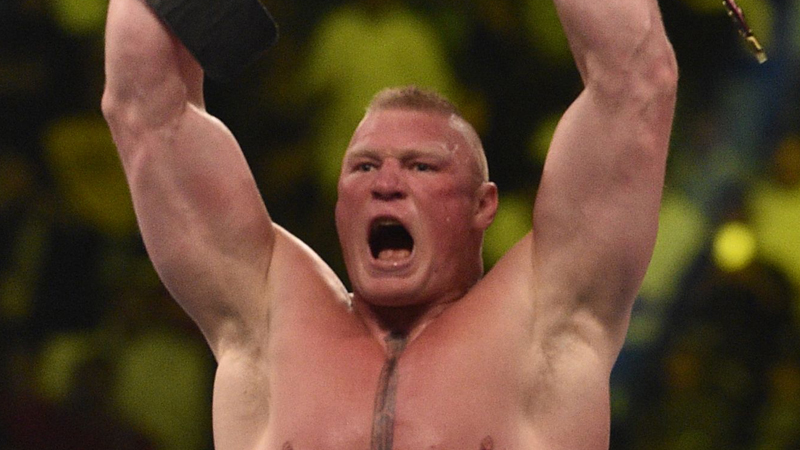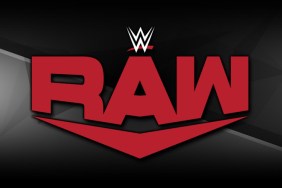WWE developmental scouts’ roles are to search the world over for the best talent there is. They have to spot potential superstars at a young age ideally so that they can take the time out to sign them, train them and set them up for superstardom in the future. Today, WWE’s developmental system is on a whole other level, because not only do they have a world-class training facility in the Performance Center, but they have the very best coaches, scouts and platforms to succeed.
Yet, the Performance Center has yet to produce a megastar to the level that the previous eras have seen. The last period of developmental which churned out so many great superstars at one go happened to be Ohio Valley Wrestling (OVW) in the early 2000s, where they would have a batch of developmental talent like no other in history.
Jim Ross has proudly boasted about that particular OVW batch, and for good reason. We’re going to be looking at the OVW batch that produced four massive stars in WWE, namely: Brock Lesnar, John Cena, Batista and Randy Orton.
Brock Lesnar
Brock Lesnar signed with OVW in 2000. He was WWE’s #1 priority signing, especially given the legitimate success he achieved on the collegiate wrestling level. An NCAA Division-I Heavyweight Champion, it’s believed that Vince McMahon was high on Brock Lesnar the moment he laid eyes on him.
Jim Ross has narrated the story on The Ross Report, stating that Jerry Briscoe and himself were trying hard to recruit Lesnar. When Vince laid eyes on him for the first time, this is what happened.
He said, ‘wait a minute, is that what I think it is? Is that 6’3″, 280 [lbs.]? Is that blonde hair? Looks like an angry Viking or a heifer bull.’ So Vince made a little detour, shook Brock’s hand, the rest, as they say, is history.”
He would spend somewhere along the lines of two years in developmental, winning the OVW Southern Tag Team Championships three times with Shelton Benjamin, occasionally wrestling dark matches on the main roster against the likes of Mr. Perfect. Lesnar would debut on the RAW after WrestleMania X8 and he would go on to receive a monster push right off the bat.
He ended up defeating The Rock in a blockbuster SummerSlam 2002 main event, winning his first world title within just four months of his debut. He would move to SmackDown after the brand split was first introduced, making the WWE Championship exclusive to the brand, and forcing WWE to bring back the Big Gold Belt on RAW.
His run the first time around, though it lasted just two years, saw him become a whopping 3-time WWE Champion. He also became the first person to ever main event WrestleMania within one year of making their debut, as he defeated Kurt Angle in the main event of WrestleMania XIX.
However, despite being pushed so heavily, it was crystal clear that Brock Lesnar wasn’t ever a fan of the business, and the life on the road got to him faster than it did to most people. He resorted to alcohol and pills, and he was physically and mentally burned out. Tired of the schedule, he would choose not to renew his WWE contract in 2004, and left after a stinker of a WrestleMania match against Goldberg.
Brock Lesnar, however, after not succeeding in his NFL tryouts, resorted to MMA, where he became an instant megastar in the UFC. He was the single biggest box office draw in the sport until Conor McGregor came along and shattered his records in 2016. He also ended up becoming UFC Heavyweight Champion, legitimizing his claim in the UFC amidst all the criticism.
However, diverticulitis would be the end of his career, and after a brutal KO loss to Aleister Overeem, he called it a day in the UFC, choosing to re-sign with WWE after eight years.
His second run with WWE would last much longer, as he was able to negotiate a part-time schedule with Vince McMahon. He became featured as a “box office” attraction in WWE, not appearing on weekly television. This undoubtedly bolstered his status in the company, and two years after he rejoined, his greatest wrestling accomplishment came when he ended The Undertaker’s WrestleMania streak.
His run over the next few years would see him continually dominate, racking up three world title wins (two of which were the Universal Championship). All reigns were extended ones, particularly his first Universal title reign that lasted over 500 days. Brock Lesnar managed to turn himself into a megastar over the years after leaving WWE, and today is considered the most legitimate athlete in WWE history.
It’s hard to claim otherwise, but his true impact on the business will be appreciated more in hindsight when he’s completely done with wrestling.
Join us for part two, where we focus on Randy Orton and Batista’s impact on WWE.







